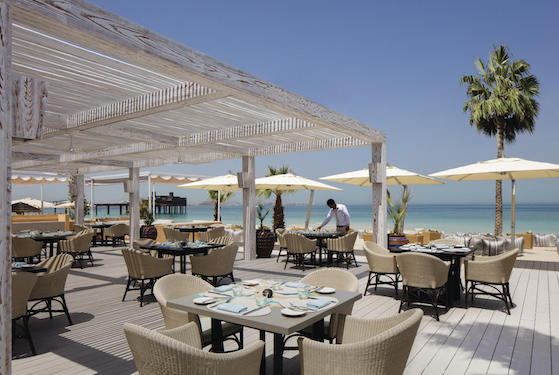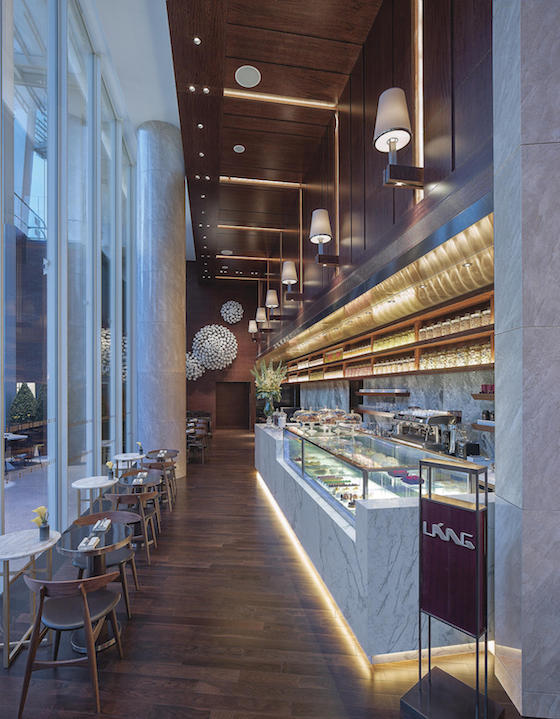Hotel restaurants at one time freeloaded off their more profitable sibling, the banquet department. Today, smart operators are figuring out how make their onsite restaurants lively spots that compete with the best local eateries.
“It’s a transition that hotels have been trying to make for a number of years, but a lot of hotels are still getting it wrong,” says Guy Rigby, president and founder of Toronto-based consulting firm Octopus and a former vice president of food and beverage at Four Seasons Hotels & Resorts. “They make the mistake of creating a restaurant that’s targeted toward the hotel guest.”
Too often that plays out as an impersonal menu of greatest hits meant to offer something for everyone – and nothing that will entice the local community. But when locals embrace a hotel restaurant, profits follow.
Attracting locals “starts with the mindset,” says Alex Taylor, Kimpton Hotels & Resorts’ senior vice president of restaurants and bars. “We think, act and behave like any other great independent restaurant company.” Kimpton’s F&B team compares notes with the hotel development team well before the drywall is hung, offering input on layout and concept.
It’s common to carry the hotel theme over to restaurant and bar spaces, but that’s not necessarily good. “You want to go into a space that feels different when you walk into it. You want it to feel like a restaurant,” Rigby says. An outside entrance and custom signage help.
“We want (our restaurants) to be seen as great neighborhood restaurants that just happen to be in hotels,” says Lana Trevisan, vice president of restaurants, bars and events at Two Roads Hospitality, Denver.

Craveable concepts
One way to appeal to local tastes is to hire well-regarded local guns to operate the F&B spaces; their knowledge of what works and what doesn’t, and their following, give an out-of-town hotel management company a leg up and a restaurant instant cred.
“We definitely love to have someone who is well-known in the community, has some buzz and is trusted and respected,” Trevisan says. Bringing chefs to Thompson hotel restaurants, such as Pedro Abascal at Playa Del Carmen and Josh Henderson in Seattle, brought cachet and a fan base. Having partners that match Two Roads’ values on sustainability and sourcing helps, she adds.
Other approaches: Discover what locals love and duplicate it, or find gaps and fill them. The Godfrey Hotel in Boston relied on its partnership with a locally popular restaurateur to create Ruka Restobar, a Peruvian-Asian, or Chifa, concept that closes a gap in the city’s culinary scene and riffs off the hotel’s location on the edge of Chinatown. Partnering with a local is a common practice for Chicago’s Oxford Hotels and Resorts, which runs the hotel.
“We’re not trying to be cliché in any of our locations — we want something there is a demand for by the locals,” says Paul Sauceda, Oxford’s corporate director of sales and marketing. In Boston, it’s Chifa in a sexy setting. At the Godfrey Chicago, it’s IO Godfrey, a rooftop space that has captured locals with its skyline views.
“We consider having a great food and beverage venue a major selling point for the hotel,” Sauceda says. “It’s also good for the hotel to have a popular restaurant during the shoulder season, as it brings money to the top line.”

London’s Shangri-La Hotel at the Shard recently launched the Five Mile menu at its Lang Café and Wine Bar, spotlighting neighborhood purveyors of everything from sausages and seafood to honey and cheese. “It really helps us build rapport with our guests and with our partners,” explains Daniel McGarey, executive sous chef at the hotel. “We are all really committed to working together to amplify London Bridge as the place to be in London.”
Building a buzz
In Dubai, Jumeirah Group has found that value drives demand in a hotly competitive market where new restaurants pop up weekly, so the company launched Isme by Jumeirah, a loyalty program offering dining and spa rewards to regular guests. Elite
program members pay for benefits including discounts on dining and hotels.
Social events offer another way to draw locals. LA Jackson, a rooftop restaurant and bar at the Thompson Hotel in Nashville, hosts a weekly local vinyl night with Third Man Records artists taking on the DJ’s role. And Two Road’s Chicago Athletic Association Hotel created a popup celebrating an exhibit at the city’s Field Museum.
Several of Jumeirah’s Dubai hotels cater to the leisure class and others with an appetite for “happening” venues. Themed afternoon teas, “Lazy Lunch” and Saturday brunch tap into this demand — and provide fodder for Instagram and other social media channels. “If you aren’t ahead of social media, leading it, driving it, you are way behind it, especially if you are trying to engage with locals,” Kimpton’s Taylor says. He recommends assigning that responsibility to a staff member with the affinity and enthusiasm for it.
Rigby says one factor will foster local loyalty: being exceptionally good at something. Whether it’s to-die-for desserts or fantastic cocktails or incredible pasta, “if you can do something really well, people will line up for your restaurant.”
Contributed by Megan Rowe
